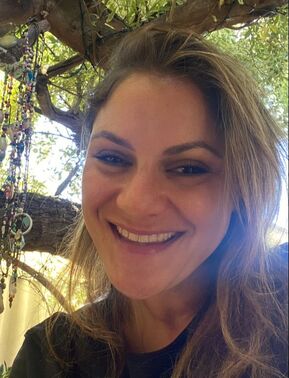 Growing up without a dad, I always imagined what it would be like to become one myself. But when my daughter was born via emergency C-section, it wasn’t the joyful moment I’d expected. Instead, I felt numb. I remember feeling exhausted and frightened as doctors rushed my partner away, and I was left trying to keep up. When they handed me my daughter and asked me to cut the cord, everything felt like a blur. I followed orders without thinking. Everything felt detached, like I was just going through the motions. My daughter and I were separated from my partner as they needed to perform some tests. They checked and confirmed my daughter was healthy and then handed me a bottle to feed her with, I completely blanked on the fact we had decided to Breastfeed her. Afterwards I went to see my partner, who was recovering but exhausted. A nurse told me to go home and return the next day, and I did, though my anxiety kept me up all night. The next morning, when I saw my partner meeting our daughter for the first time as they had been separated throughout the night, I felt like a stranger to the experience. The rest of our hospital stay flew by, filled with visitors and family asking about the baby and my partner’s recovery, and soon we were sent home. At home, things took a turn. My partner struggled with breastfeeding and was clearly battling postpartum depression, while I tried to help her, suppressing my own emotions the whole time. I wanted so badly to love my daughter, but I couldn’t shake the feeling of numbness, and all I could focus on was how unhappy my partner was. When I went back to work after a few weeks, the drive was the first time I had been alone in weeks, and I finally allowed myself to cry. At work, I pretended everything was fine, showing off pictures and answering the same questions about my partner and baby, but inside I felt lost. It took months before things started to settle. My partner’s mental health slowly improved, and so did mine. Eventually, I began to feel connection and strong feelings of love for my daughter, but guilt lingered. I felt like I hadn’t been the dad I should’ve been in those early months. Looking back now, I realize just how deeply I struggled with my own depression, and how, in the chaos of a new baby, dads are often overlooked. It was always "How's the baby? How's mom?" with maybe a passing comment about how tired I must be. But I never felt like anyone truly asked how I was doing. I now know I wasn’t alone in feeling this way. In Australia, one in ten fathers experience postnatal depression, and the number rises to one in five for dads whose partners are also struggling with their mental health. Despite these statistics, the emotional well-being of fathers is often ignored or minimized. Of course, mums and babies absolutely deserve attention and support during this critical time, but the focus on them can sometimes leave dads feeling overlooked. Many fathers, like I did, end up struggling silently, caught in the chaos of supporting their partner while also managing their own emotions. Reflecting on my own experience, I can see how easy it is for dads to get lost in the shuffle when they need help too. Looking back, I wish I had known it was okay to ask for help, to take a step back and recognise my own struggles. Becoming a dad is a huge life change, and it's important to remember that supporting the dad is just as crucial as supporting the mum. Now, I’m more aware of the importance of self-care and reaching out when things feel too much. Fatherhood is a journey, and it’s one that should be shared—by both parents—without shame or silence.
0 Comments
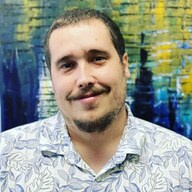 Written by Sam P Peer Support Worker, The Wellness Initiative It is a big question to ask myself, how “has being a Peer Worker changed me as a person?” I guess the best place to start is to first give a bit of context. I as a person have always been anxious, I don’t even really remember when it started and as anyone who experiences anxiety knows, it truly sucks. I spent a lot of my time avoiding situations that caused me anxiety and the list of things to avoid kept growing until before I knew it I was completely isolating myself. I would only ever be at home or at work. I remember people asking me to go out places for fun and how that sick heavy feeling in my gut would grow with all the negative thoughts about traveling somewhere or being around people. So, I would always make an excuse, eventually people stopped asking me to go out and my Isolation slowly grew into depression without me even realising it. My depression and anxiety eventually led me to seek help in the hospital, this was when I was introduced to a Peer worker for the first time. With their support, I set goals to break my isolation which resulted in me joining a Dungeons and Dragons group, something I had been interested in but too anxious to try. This resulted with me forming lasting friendships I still have to this day. The experience of achieving my social goals awakened a newfound drive in me to overcome my anxiety not just for myself, but for others too. On my last day with my Peer Worker, I expressed my desire to follow in their footsteps “I want to be a Peer Worker”. Despite the challenges, I worked on myself, polished my resume, and applied for jobs while pursuing skills at Tafe. When I received the offer to work at The Wellness Initiative, I was overwhelmed with emotion and not ashamed to say; I had a good cry, knowing I could now use my experiences to help others. Starting as a Peer Worker So, I’m now a Peer Worker, and anxiety is still there bugging me with thoughts but they're not as loud as they used to be. My new role started with me doing a few buddy shifts with another Peer Worker so I could watch, learn and ask questions but eventually after a few weeks I got to go and meet my first participant solo. I was really anxious on my way to this first support but as soon as it began, and I started learning about my participant's goals, my anxiety gave way for excitement. Suddenly I was talking to this person about all these exciting ideas and prospects and all the time feeling this profound empathy for my participant's struggles and barriers as I had been there in their place not so long ago. Empathy is such an important thing to have for a Peer Worker. Every participant I get the honour of meeting has their own journey of recovery. I truly find the strength my participants have found in themselves inspiring. It’s something we can share, bond over and celebrate together. That really brings me back to the question I asked at the beginning, How has Peer work changed me as a person? Working alongside my participants I have learned and experienced so much. Everyone has their own story to tell, and having the privilege to listen and share in these stories has opened me to a world of possibilities I never could have imagined. One particular moment stands out as a testament to my personal growth. When a participant asked to go swimming at the beach, my initial anxiety surged! However, instead of retreating or making excuses, I chose honesty. I admitted my lack of strength in swimming but expressed my genuine desire to support them in this goal. This vulnerability and openness marked a significant shift from my past self. Rather than creating a barrier, this honesty sparked a constructive dialogue on how we could fulfil the participant's wish while respecting both our needs. As a result, we visited the beach making sure to pick a spot between the flags, the participant began to swim while I stayed in the shallow waters where I felt more comfortable. I feel this experience exemplified the power of communication, understanding, and mutual respect. That’s what has changed for me the most; doing things outside my comfort level, embracing vulnerability, and connecting with others on a deeper level whilst still maintaining my boundaries. This would never have happened in the past; my anxiety would have just not let it happen. Yes, the anxiety is still there, but it’s no longer something that stops me; it’s a tool I get to use in my effort to help others and myself in new and creative ways. Embracing this has empowered me to navigate new challenges with resilience and compassion, fostering growth and connection in both my personal life and professional journey as a Peer Worker. 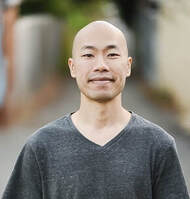 Written by Jaan C Peer Support Worker, The Wellness Initiative I remember being happy as a child. As long as my basic physical needs were met, I was a happy kid doing what most kids do. I was a pirate who drew maps that lead to hidden treasure. I was a detective who specializes in solving any and all cases. As a 90’s kid, I went from walking around like RoboCop to pretending to fly like Captain Planet. Nothing bothered me much and when it did, it didn’t last longer than an hour or so. I was more or less happy and content just living in the moment and enjoying the simple things. No responsibilities. No worries. Not a care in the world. Isn’t that why we often feel nostalgic for the good, old days? But somewhere along the way of growing up, I got it into my head that happiness was something to be pursued and acquired. It was no longer an unconditional birthright for me to experience. There were now apparent conditions that had to be met if I was to be happy again. I wanted to be liked by tons of friends so that I could fit in and be happy. I had to act a certain way in order to fit in. I had to figure out what I wanted to be when I grow up so that I can become “successful”, whatever that means. I had to have the latest “stuff” so that I could show people who I am and what I’m made of. I had to stand out. I had to be special. I had to be validated. I had to have control over my life and destiny. I’m not sure if I picked up such ideas from my peers, the adults around me, or the shows and movies that I watched. Possibly all of the above. And like a lint roller being used, I was picking up the lint of ideas that stuck to my mind and caused me to feel less happy, bit by bit over time. Less happy. Less content. More anxious. Mentally, it became a heavy burden to unknowingly harbor this mountain of destructive ideas and expectations. It’s too heavy a burden for any child to have to carry. Or any adult for that matter. Around my primary school years, I started having a tendency towards an extreme need for control out of fear and anxiety which I didn’t recognise at the time. This manifested as obsessive compulsive habits of checking things. And I mean I was checking everything. Everything needed to be checked, locked and secured. Items needed to be correctly lined up and arranged in a certain order. I had to write everything down because I was afraid that I’d forget something important, which would lead to a disaster. I had to wash my hands every time I touched any kind of surface. Fear of uncertainty. Need for control. From the outside it seemed quite comical at times, and I laughed along when friends and teachers poked fun at me in good nature for being so pedantic. I didn’t mind the jokes being at my expense because it was comforting to know that someone was entertained by something that was causing me so much anxiety. Being funny was a much nicer experience than being anxious. But in my teenage years the anxiety really ramped up. I couldn’t follow through with university studies because I was getting headaches from worrying about anything and everything. I dropped out and just hopped from job to job, not really knowing what I was supposed to do. Not knowing what was wrong with me. In between working I would distract myself from anxiety with entertainment and escapism in its many forms. It wasn’t until my thirties that I felt I’d had enough unnecessary suffering and started to question my life. I examined my life closely. I read. I studied. I took classes. I didn’t know where to look, so I looked everywhere. I dabbled in philosophy and psychology. I found faith and spirituality. I simplified my life and began meditating. I started on the path of gradually unlearning all the mental conditioning that kept me from experiencing happiness and contentment. I started to acknowledge, understand, accept and let go of the destructive thought patterns that kept me bound to anxiety and fear. It wasn’t a one-time epiphany, but the start of a lifetime endeavor. Day by day, I’m still making peace with anxiety each time it visits my mind. Sometimes depression also comes along. But it affects me much less now as I strengthen my mindfulness and gain more self-awareness over time. I’m more able to perceive these thought patterns and the emotions that they bring at a safe distance, so that they don’t rule my life as they once did. My daily behavior is no longer as erratic and emotionally charged as it once was. Everyone’s path is unique and we all have different ideas that often contradict each other. Each of our lives will play out differently. But in the big picture, aren’t we all just looking for happiness and contentment? Nowadays I feel that uncertainty is a given in life. Any sense of control is ultimately temporary and subject to change at any time without notice. I find it a much healthier and balanced approach to understand and accept this instead of fighting against it. So when I lost my happiness as a child, where did it go? Nowhere. My happiness never went anywhere. It’s here, right now where it’s always been. It’s here even as I’m about to finish writing this article. It was only the gradual and unconscious buildup of mental clutter that slowly blinded me to the peace and happiness that never left in the first place. Daily life often takes me away from the sense of happiness and contentment, but I try my best to find my way back to it time and time again. It’s a lifelong lesson that I will continue to learn and relearn. Otherwise, what’s the point? Author's Note: I hereby declare that I am the sole writer of this entire article, and that no artificial intelligence was employed in the conception of the material presented. 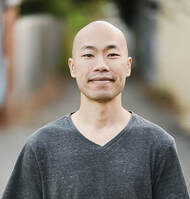 Written by Jaan C Peer Support Worker, The Wellness Initiative Years ago I was very much in the unconscious habit of constantly blaming things around me for my lack of mental and emotional wellbeing. Someone was always annoying me. There was always too much traffic on the road. Other drivers were too rude. People that I disagreed with were always too this or too that for my liking. At home. In the workplace. In my social life. I carried this mindset with me everywhere I went. In short, my ideal world revolved around me. I had no tolerance of opinions and views that were different from my own. I was much too easily offended. If the world didn’t suit my expectations, then I was triggered to either anxiety, annoyance or anger. Sometimes it was a snowball effect of the three. And I would speak and act on those feelings too. I made sure that people around me knew I wasn’t happy. I felt strong (temporarily) for standing up for myself and lashing out. But now I understand that there’s a difference between calmly speaking my mind and verbally regurgitating my negative emotions. One comes from a place of composure and maturity while the other comes from a place of ignorance, fear and hurt. I found that my irrational outbursts would almost always trigger someone else to do the same. With a mindset like that it was no surprise that I often found myself in unpleasant interactions with those around me. I blamed people and I blamed circumstances for my lack of happiness. I blamed myself for failing to improve my situation. It’s a very heavy-handed and unforgiving approach to life that feels like emotional quicksand. I was totally oblivious to how this blame-oriented way of thinking and perceiving was directly affecting my mental health and emotional wellbeing. I couldn’t accept the world for what it is so I kept trying to mentally resist and control it. But these days, after a few years of self-inquiry and practice, I lean towards a more solution-oriented mindset. Whether it’s with people or situations, I don’t find it helpful to assign blame as a knee-jerk reaction anymore. Occasionally I find myself slipping back into a blame-oriented mentality, but it loses charge as soon as I notice it. Life gets difficult at the best of times so I certainly don’t want to be adding extra and unnecessary emotional baggage for myself by constantly blaming things. Whenever I encounter someone who is still in the blame-oriented mindset, I listen attentively as best as I can. I stay mindful and choose not to speak or act on the feelings of anxiety or irritation that can often come up when dealing with incompatible personalities. I may offer a gentle perspective of my own but if it’s met with negative emotional reactivity, then I usually just fall back to listening and accepting what’s being said. I may not agree with it, but I can still listen and validate someone’s differing opinion. I don’t feel much need to defend my own views anymore, especially if it’s going to cause a destructive interaction. To defend is to protect ourselves against a threat of any nature, whether actual or perceived. I used to be quite verbally defensive because deep down I felt threatened by anyone whose views contradicted my own. I always wanted to prove my point and make them understand. Even if I was getting nowhere, it felt good to argue for the sake of it because I blamed the other person for not seeing things the way I do. But these days I find that in not being so defensive, it sometimes allows the other person to let their guard down and open up to me. At the very least, it creates an opportunity to connect with someone instead of seeing them as an enemy. Collective change is less likely if we’re still caught in the blame game and always defending ourselves against each other. Some conflicts are unavoidable but I found that many can be with a more solution-oriented perception of the world. After all, how can someone argue with a person who doesn’t defend themselves? It would be like trying to punch the air. No harm can be done. Blame-orientation tends to create more division among people (and within ourselves), but solution-orientation encourages unity where possible. There’s a difference between having a discussion to reach a solution, and an emotionally charged argument that aims to tear each other down. There’s a difference between observing the cause of a problem, and making an emotionally charged judgment. There’s a difference between working towards a change and trying to force change to happen. Sometimes the solution is to speak up. Other times the wiser thing to do may be to keep quiet. Sometimes the solution is to change our perspective or environment (or both). Other times the wiser thing to do may be to accept things as they are. The intention behind our words and acts are what define the quality of our interactions with others and within ourselves. Author's Note: I hereby declare that I am the sole writer of this entire article, and that no artificial intelligence was employed in the conception of the material presented. 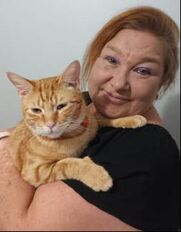 Written by Soraya T Peer Mentor, The Wellness Initiative I am a voice hearer and have been for approximately 35 years. It is a difficult thing to disclose due to stigma, and the most common response I get to announcing that I hear voices is for a person to ask or state that I have Schizophrenia. The short answer to that is “no”. Whilst up to 80% of people with Schizophrenia hear voices as part of their mental illness, hearing voices can be associated with other mental illnesses such as Depression and Borderline Personality Disorder, drug and alcohol use, and many people also hear voices in the absence of any mental illness. Approximately 5-15% of people experience at least one hearing voices experience in their life. Hearing Voices can also occur in the context of falling asleep or waking up, due to bereavement and grief, sensory deprivation and very commonly in the wake of trauma. Approximately 70-80% of voice hearers have experienced some trauma in their lives, whilst child abuse and going to war are commonly cited traumas others include marriage and divorce, the loss of a child, and the loss of a job also affect the way people feel and react. One of the reasons we use the term “Hearing Voices” instead of the traditional “auditory verbal hallucinations” is the fact that in the past AVH was associated with voices as being ‘not real’ which both demeans and devalues our experiences as voice hearers. We prefer to use terms that indicate our experiences are not shared with others, but are still in fact “real”. “Hearing Voices” is also a blanket term designed to also cover other experiences including visual and olfactory experiences, and other unusual perceptions. Voices when associated with Schizophrenia and other mental illnesses are often negative and commanding, however this is often not the case. In my case my earliest voices were helpful and guiding, it wasn’t until I experienced trauma around the age of 19 that I started to experience negative and frightening voices. There is a lot of support available for Voice Hearers presently, as professionals try to understand and explain the voice hearing phenomenon which is as vast as it is varied.  Written by Jules L Volunteer with The Wellness Initiative The other day I was scrolling though Instagram when I happened to see a post by former tennis athlete Jelena Dokic. It was a long piece and I don’t usually stop scrolling for more than a few seconds to look at anything more than Kmart storage hacks and how to apply the perfect eye-liner. Well, something caught my attention… At the very top of the page there were two photos side by side. The image of the left is of Jelena in her former tennis playing days and the image on the right is Jelena now. Besides from the visible difference in her body shape, her face looked entirely unrecognisable from the Jelena I used to watch on TV back in the day. She has a smile on her face of someone who looks genuinely happy. I was intrigued to see what she had to say so I started reading her post. To say that I was covered in goosebumps with tears in my eyes after reading her post is an understatement to the emotional reaction I had to her words. Her story, although different to mine, rang so true for me. It reflected so much of what I had thought and felt but never actually expressed. Jelena describes how she endured bullying, domestic violence, physical and emotional abuse plus the terrors of being a refugee amongst a myriad of other traumas. She is a survivor and has gone on to accomplish many incredible things since her tennis career ended. However…. she then goes on to say that the most common comment she hears is “What happened to her? I can barely recognise her”, in response to her current body size and weight. In describing the two side by side photo’s, Jelena describes “The one on the left is a size 4, scared to death, beaten unconscious and that bulge on my shins is from being kicked all night. The one on the right is me at size 16, I have survived it all and I am here healing from my trauma and thriving. I think the face in the two images says it all. I will take the size 16 over the size 4 any day if it means I am happy. If it means I turned to food to try and survive, then so be it. But I am here, I am happy and most importantly I made it through.” All I can say in response to reading that is ‘WOW!’ Wow for her bravery to come out and face these critics, Wow for her courage to survive against all odds. Wow for her recovery journey and Wow for the incredible, inspirational human she is. Her article struck a chord with me and my own personal mental health journey. When I was acutely unwell my Dr prescribed some medications that are known for having the most glorious side effects, amongst which is excessive weight gain. I admit that he did inform me of the fact that I will most likely gain weight and at the time I was so desperate to become well again that I didn’t really care if I put on a few kilo’s. I remember saying to him that “I would rather be happy and fat, than skinny and sad”. In truth, if I had my time again, I still would take the medication as it was a crucial element in my recovery. Eating also became a coping strategy for me as it does for so many people. When Jelena says she “turned to food to try and survive”, I thought, so did I. And so do so many other people. And it’s OK. I landed up putting on around 35 kgs. The home I was living in at the time had a bed directly opposite the en-suite bathroom. Every single morning, I would swing my legs off the bed and sit on the edge of the bed and stare at myself in the bathroom mirror. I would look at my reflection and say to myself “you should be ashamed of yourself, look at what you’ve become”. Every single morning, of every single day, without fail. It became almost like a ritual. But the further along my recovery journey I moved, the more I learned to love myself. Over time, I started looking in the mirror and seeing the face of a survivor. I learned how to change the narrative in my head. The self-talk changed from being the most horrendous critic to finding words of love and strength and encouragement. I used to refer to myself as a “soldier” because I was marching through my recovery with the courage and bravery of real soldier. I stopped worrying so much about what other people thought. I was so genuinely proud of myself and it showed. The more I fell in love with the inside me, the more it showed on the outside. In 2019 I had to have back surgery for a prolapsed disk. I was told that the amount of weight that I was carrying was taking its toll on me physically. It hurt to get out of bed, to stand, to exercise. I tried and failed at losing weight naturally and in 2021 I decided to have weight loss surgery. I was pushing 110 kg’s and the decision to have surgery was not taken lightly. The beautiful thing about it all was that the decision to have the surgery was for my physical health and not for how I wanted others to see me. I recall the surgeon commenting that I will notice a great improvement in self-confidence and I had a little internal chuckle, as over the past 8 or so years, I had developed so much self-love that a lack of confidence was the least of my issues! After the surgery, I lost the 35 kgs that I had put on. It was an interesting time for me because a lot of people saw my weight loss as a sign of my improved mental health, when in fact that was not the case at all. I felt compelled to be open and honest and tell anyone who complimented me on my weight loss that it was because I had had the surgery. I guess in reality, I don’t want to convey and perpetuate a false idea that everyone can lose weight through diet and exercise alone. As cliched as it sounds, it doesn’t matter what size I am now. I was happy as a size 20 and I’m happy as a size 12. I loved myself then and I love myself now. At the end of the day, I am a survivor too and my face today is a reflection of that. Perhaps what stopped me scrolling on Instagram was the familiar smile I saw on Jelena’s face. I smile different too 😊 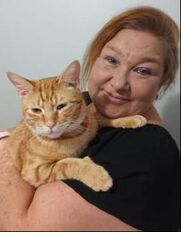 Written by Soraya T Peer Mentor, The Wellness Initiative I was diagnosed with Borderline Personality Disorder (BPD) in 2000 when I was 24. It was both a blessing and a curse. It was a name to describe my torrent of erratic emotions, feelings and behaviours but it also brought with it a barrage of stigma and discrimination. Descriptions such as “attention-seeker” and “manipulator” become the norm. Yes, we are attention-seekers, but who doesn’t? It is just that people with BPD often don’t know how to ask for the appropriate help in the appropriate way. Yes we can also be manipulators, but you have to understand that people with BPD often come from toxic relationships, often as far back as their early childhood. They never learnt respectful ways to maintain relationships while still getting what they want or need. It took me 7 years of really good therapy (and many years of not-good therapy) to understand myself most importantly, but also to understand my relationships with other people. To learn what was important to me, and the proper ways to go about achieving those goals. I also learnt the important people in my life, the not-important people all disappeared while I was behaving like an atomic bomb. I underwent 2 courses of Dialectical Behaviour Therapy (DBT). The second course was a light going off. I learnt how to name and respond to emotions such as anxiety and anger, acting in ways to use those emotions effectively instead of destroying everything around me. In 2016 my diagnosis of BPD was rescinded (not even traits) and I was congratulated by a psychiatrist for being the first person he had met who had recovered from BDP. Truly I don’t believe we ever “recover” from BPD. Some days I still wake up with a torment of thoughts that are jumbling my emotions. However using my DBT skills and other life skills I can sort through those thoughts and feelings and organise myself in a way that leads to a happy and healthy life. I’ve been happy to be working with the Wellness Initiative for 3 years, and during that time I have met a few participants who also experience BPD. It heartens me to be able to share some of my experiences and strategies for living healthily with BPD. I feel so warm when participants realise that their torment will not go on forever and that there is hope for them to have a full and happy life. I truly believe all my BPD experience has brought me here to a point where I can help others, and I believe that has given me the purpose that I have been looking for, for so long. |
The Wellness Initiative would like to acknowledge the traditional custodians of this land, the Nyoongar people. We acknowledge and respect their continuing culture and the contribution they make to the life of this region, city and boodja, and pay our respects to Elders past, present and emerging.
© 2025 The Wellness Initiative Pty Ltd. all rights reserved
ABN 21 633 581 450
Servicing Perth and surrounds
Email: [email protected]
Phone: 0478 511 825
Follow us on socials!

